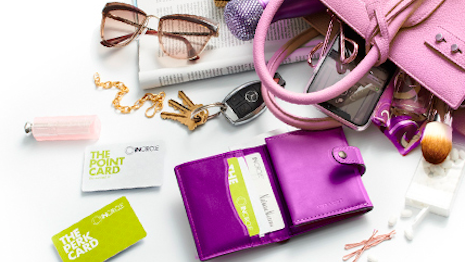Consumers’ interest in signing up for loyalty programs has waned in the past few years, as privacy concerns and a lower perceived value for membership make them hesitant to enroll.
A new report from CFI and Radial finds that to make a loyalty program worth their while, shoppers want perks such as exclusive promotions and expedited delivery. In an increasingly competitive retail environment, loyalty members are a significant force, driving more value through word-of-mouth recommendations and more frequent purchases.
"Retailers understand that they need to offer meaningful options to meet their customers' needs," said Carey Stoker, senior vice president, customer care services at Radial. "Faster delivery and flexible returns are important, but equally important, if not more so, is equipping customer care agents with the ability to immediately recognize the customer as a loyalty member and provide personalized service for that customer.
"A personalized experience not only enhances loyalty but drives additional revenue for retailers," he said.
Attracting members
Loyalty members are highly valuable to retailers. These shoppers are 12 percent more satisfied than other consumers, and highly satisfied customers tend to spend more.
Thirty-seven percent of those with high satisfaction scores make 10 or more purchases a year, compared to 22 percent of all consumers. Additionally, 42 percent of satisfied shoppers spend $500 or more annually, with just 25 percent of all consumers reaching that threshold.
There is also a correlation between high spenders and loyalty enrollees. Seven in 10 of those who spend $500 a year in online retail say they sign up for rewards programs, while only 55 percent of others enroll.
Even though high spenders are often loyalty members, this group is equally satisfied with retailers as those who spend less, with both groups giving an average score of 69 out of 100.
Creating happy customers is important, as they are 13 percent more apt to recommend a retailer to their network.
Despite the importance of loyalty programs, consumer interest in enrollment has declined.
In 2016 and 2017, between 83 and 84 percent of consumers said they typically signed up for loyalty programs. In 2018 this population had dropped to 58 percent, and this year it rose slightly to 62 percent.
One factor behind the drop in loyalty program enrollment is a desire for privacy, a concern for 30 percent of consumers who say they do not typically sign up for rewards programs. About a quarter are worried that sharing their personal data might open them up to identity theft.

Consumers' worries about identity theft can be a deterrent for signing up to loyalty programs. Image credit: Lord & Taylor
A significant reason why consumers do not enroll in loyalty programs is a perspective that being a member is not worthwhile, a sentiment shared by 39 percent of those who do not sign up.
One of the biggest ways to convince consumers to join a loyalty program is by offering valuable services. Seventy-nine percent want promotions such as special offers and discounts.
Sixty-three percent also say they could be swayed to join a loyalty program if they could receive faster delivery.
In addition to shipping, customers who are enrolled in loyalty programs have higher expectations when it comes to returns. Retailers that offer multiple return options will be more successful at getting loyalty customers to return.
For 41 percent of high spenders, the offer of better customer service is enticing. Six in 10 loyalty members expect the customer service representatives to recognize them.
Value seekers
As the retail revolution carries on and convenience trumps all, consumers are missing out on experiences they crave.
According to recent research, 55 percent of shoppers say that one bad experience will turn them off to a retailer or a brand, and 29 percent say that shopping is no longer fun. Per a survey from Klarna, 36 percent of consumers today feel that while convenience has grown, experience has been lost (see story).
Beyond retail, value is a driver of loyalty in other categories.
Word of mouth can have a considerable impact on travelers’ loyalty to hospitality brands, since even repeat customers can be swayed away after reading a negative review.
According to a report from Yes Marketing, consumers are seeking value for their money first and foremost as they make booking decisions. Marketing amenities and perks and providing exclusive membership benefits can help customers feel rewarded and retain their loyalty (see story).
{"ct":"0nSgX3Jrt026TD+iSRnPr33VSh5ZPGxaOiOs2Kj6sunJrScj\/4vhWAl5w1bygAWmwJTEGEKpC2OIXekqwWuoGEAoRHOVjGekalbufcmbaTWzeku013+xVsEVHYoe0zXtKcBIOqr\/1qZN8LdGgutG1Jaz1Xcmqgyfnf+10dmMcFEEq8JbP7CAnipKfbwGQ5ZI6XRnpeumPZ4Ick0AGTMNfXfqKHu7Etnzz8QezFebrcWx3iPMlxkGFJT\/acJhcgT+vsTIgdIx6ssiW+qVZ1kcTf5LSmQMziSaO+TEOfBqrlG66On\/LHwu6z4hDkOtMf\/ezVsaleBdTiZYdl8vycke182L\/HWrB+g0+dO+zIAYOAKD\/XhDZ\/HtDmkUG1L4MhFu31LyCgSQzMyH5euv4QKFrUMcZaAHpQuRi4zrFACDJiLKWHTyO30G1znP6fyAuEWH4hX+89R+6MOkQn0DApnhg4jFb8y+ZErOtpDQWK9MokOSXLCLnjJPUYYRByZXOOnyHwL7gMsnE5F52+ArGcld1\/KF9roU7vC2ZTdff\/GLzPLQf82EIArX0mNGrDnhbQH26hAjy64KAXQBGq+aRV6IVtCOZEQQge3jWGDuA7Qo60vPQlnT6LQ85pE9gPEwOhUCaE9a9qmbGNe\/5C7ES\/tqTSebOVjEEbL9w8SxWwo88IZHbXOycqPx1fqyCcJbVMb1Hse3ZSQyG8QFm3zrG3YeJs7aXFnmAUEMbOW5HxURyZ26tSqohJM6kL6gU+nDL+j6KxHwGolx1kxQIIBcuZ0UllFSg4PIvJYmY7Jx6ZIbWAGE7HHayrwmizbRxper87a9CWCybvbtjEiA6OM4hUquDLCRO8bNdF27u9vsTWXhRVFh64Gx53tneGL1fQG9XCcygkGDaxMlRKGcXseCkXvAWoapglgJ0SLnKt\/QPUEGTN3V20snmszus0WN5cmHE4bq7lcR9gUqc7UIj4GIy1BIwcuV7A7+dGIkMxbuDmW1d2F6XRk4279qJvw1BgSzyBOA8cp\/\/aut6QSxHM\/HRGhRXZqIND+99MUBKbnmzx65DwI2BjgQlOfWsjP1ByJdVJLkvubhqseySkriVi2\/ROABQhXftBJXSQYALWfWWs7pvgniwEXHuJBlssAU0AjZkz5JoKhpWFBh1uKpuZ4gzoX2wg8WUkd9UPq+rL8gc4b0oGg7IveUfAJHAsJsY+2DBQBJpgZuiWOc5KcKUHwzhVfgLigMDg6HT+Y0RfPr+m+LYp2sFbCVe25OGjGVYe6p+yzIPL8kcxs1JcjYalAXkAhBe8Io2+Uve7qGHFYLWwQiJINlnfhPEss40zjYkwIjzQk0jfRBOuzpzyqi67gQVJHrBBWKBdT3pHwc21tFY0+1HlkX7equ+nwDdEKqNq6L\/5sW4wBlRE5ET\/GQQ+ILLyDCYht6cx2ncog5onMf5Tpt8RXuN6VSf2RYqrfOIiAFb7o7EsfcEj\/w4AkroV0lSpImnxv2JHAqKWLvxw5I8bKKFGoc4peWanpbWsX0bht09pubK1m1PJ5UYc7k3\/6KNeN5MTa19nPv9KMFk4k34QDWSmdan3NMc+LpyH3TrpYJB7yjAyjKY81vj30Nu3iVKOu9hqwS4Pcja1gcxSCYfkUBCdunjifrFsTqqWcYJJ6BU5UAnlGr1zWQh726sTHAwMyiwIO1UINooojLsYPthQNbrbfzvHlz+53fexhU4d5pSLPnwy7kx4nbM4NdpjUokkJBiRk5gke35ESSPT8KoyVWbEZdNHoVin8aTSFWoufM+Vw6hssrGG4OCek+1AV4OsyluGGvyGd7OMhE0DGYccEWSS9YJ02\/bfYNZm+WqC3+Oqbe+CQ229DMkPdeE4eDZ4tI+beikxJp1FGB7Qpyhr\/ZiGIfDB2dJ+MgeDAb80hbkOIvD8DY8Lp8YgDWuwpHqHWLPiqZBv62EBBgANg+EkNzB+y89Sj8dw9nPMJ\/iBpCoE8FLTGAHl9CxZwdG1QHGDsyelJWZ6INyRw9txhtl2e0YmxsfFBmtiyUzW2GaOjyYFj\/\/vK\/YftBB3GSYsWQai1un520MMe909Xez5KxdIdKIAsFKtcDtVvru4vEZOapx1\/qcZO\/O6MukfhinhgJEF4KY0CEwIxG4EbApZ5wW670STkxNhfgr88BJQ4xmiPtAuxfug+Yw8+Dp0Aj69XirEGCf8prnhqJQvAcAoV7J\/VqN4z+loIJrFLSbkEXeGGWgWeyIpmSi9G7f5R2WEG0ytWGk+8bKMZOmhD09ifteSrCEMLlsI5wh7R7UoMatlUXe\/9ssR6\/fbaQnClMPCBgSiUWV\/aH8jp+IO6K8mOuEEjTQRzwsqBaCfM3uGWUM07+oO0psc3jD197fGUrm3By+yIWyXgghlfJRk2nsmD6utKiZifjRHGgabmhulPJ7T49F2pSoepNpmiZ+VUCn4mhRagwV\/pzeoNWMwfOR13Cfnowbx2tdcJGV\/g4En3F9CRgHQa+LfZVuhxuOvUkoaj4bDSxwmalftbksKU+95lHALxPR63aNAJz7ThY\/JAJAk0djlsGFnHPYtizgSMK4VVV05xF+wyv6FOCY9hw88+T2+Vmq96h5dFf4YZQ5uUQgqK3ZfYRa+0MMToWcubxfgjoODHggaY+hfHRAbDBacZOdoAQAh1hl7OMZostEymQKIT9KilldlnnbT3hKPHEJ03dAcqrsxXO0UsWu3V2E1A7FFQCSSee5N47nsYvK+BXroF8P62tzn9SReQgO0HLWp0vc+EVtcb13Kd6Cp8DsxCBNgYjieS0CBpmcdATpfWbR9gy3ziryyqhEoWnhOqSfJ4i\/7K4zBfveSAwKlM3pNx4oZ5wMBGJ+IB\/VdcLD52qzcCc5szPmyU1idoyCeT2yH+sjy5R1jXgD5woB\/E4qoqX0K1BJirEUQNUM9G09Ilm16\/RvJsFAvvOWmlRllfgpNDGyFQ1+NAYsrx2nkWTfEt36iSROy2Whx+br+0GNNaPJyCFONO9PMRfa7n0QjhhQHvUk29xlD5jSSvWx4qY1ZrcTw1mUbw7g4NYPdEQ9nOgfyw2IPgz5CEVnMb10Hw+UobeEdB1j1ELrBOI+7jeYvPDZ6poQFzUhdbB1sDKQlQ2AKaJS5vdaNofaLZNMWSe5qMA0n35FNci5WvCc5xSGTl34oq1\/suxMjwII5hL5qtYkp74VQf7eFIl92kps29Pb2KNqwM3GxmbPkOdq3GkKreg5GHIHcoYrW9SBUPG6JSnqrQcI4mmYLAm4F1jJjTGaQ93rgu28RIyWzrZl2ZDjn2\/es7NXSRz0yIY0OAS6+wK8TxhrforL9qOD8LZn8owSNQ089zS9tmXGP25bk3JHw4YN9rAc\/vDy0QU7SmRZb\/EoEYSdn\/KRFNsFd47m0WKX1z51u8wmembvHwAfrelrmcTZBi+tXGCywpH+Z0m5CjWNlr+DQCh2IK7DJ1KG9qL7TeiSysNAAm9meeJoClz7QLoZuA\/f09iZlc39XIElf3RwNzcxoJBTYUiAHSM88GivMpM7j0Th5odoWyD9O1zlHYDKewuyJ\/M1fUU\/0NaqeJv8E3kj5CdPc4amj34FPAJPxBTSSIXMioVoOCEoddmn3DHZVp+pM11TN\/yvm+zOdoigTukmc8nGG1dS8TQ+J8jerddiv8gjRL5FsIye6JaMYUh1cAUy3CsEBDjWTiGLhxcOu4i7x\/Lgf7Gvh2PjP1HZMoDopxigAxMuTcPFOvzQ0TJhMXnddeXXTvo69vzy04vbp3Eu2E8fx5Ku+dPEwJgGJ0MLSVSZC\/3wBEK6s9evij1uOFKwIpiAwG1paHvgAuMf6JMVv2PHDp0LYI+XrhKpA8mFMN3qPA9UbwBM\/F2RcG\/I8ckx70\/kT8NzXJwTVvxnKQKH8xjaVgYkNDJRqiUkp8rEi0cpdlAkWCHMKzdySbLn0m20\/asMFE2WVF\/\/jdwfJG+ISTidrFkW7RLr9fdKqSB5PE5grDlw5p4\/NNy91C904FNRrq+UGJDp0kIluH3wh2Ka5VcKNj05vLFto2+eritkHH3FiCQR\/CI1YGNcBrWH2C3RhONmBb4DQq2PDiod+36Xpnp9p313liV9froOFyrtAiO5cCK+UVR1fYsX64kM73hbYpB34+Z64yZ0DGOx4rOWhIrl45myQvLJO0LAKv6SAHHD5OfrzTve+ADbrdKvj4oQk56iekUArqw+THs2ZQBI2bWw6dil4jT6YUOSm7eqymMnoRqCuRF\/Wzgo0ErgYGeuBXdwM0TTfG7Th11xZ7cDH7RUfeQdYjHYG\/lUp5fhva4LhrTW4mzglkoDJ8bKgt\/wC4fDFrcdIWdzYdMao4Ua7UhK\/kFeqvAmZSQQuigZyYkoGkOUiM8m6r0DMFCKC+vbbTA2Cx8TpoubKCdy0FbkEfFDNNLljRT94uIh4efPsfNOCdWWag30H+wxfDdx2eR2xcrl8B2znfDMVol4eOyxa4aYP4exfBvpL4UsEvoVIGJ4VAYgrhWmi8BiJhDUPAXQ3T4iLjlmFbY2g2OxFth0myEyWYIcnUM\/hzI9UU1bVxg9+u9Ep79beCR\/0u26U3hsE0bGDS2TImAcZr6FIJ9uIzTTmeiuSk9mXLgPYLSlrwPT6L7EM9valxGLgsN8XHjNpejOnd1K9pd9YoCz5KKumX+ZDxiMaazfTbFll5RjbtVm2Kc0AX\/NUM9CBsv1n7NY2ngt1oDn9UwjjKlz5UTdtFl7M6FTFpPRwXJE5\/YdxD3Smf2PEeZDvmNFGEaYH8LkMvJJW4ZQqctp3xUstOEZftZQEFITgAd5UZIBChNdYUPlftz9D2HCrLk4OcdSiLXqFOXSiVwTMtFbX0qS2shvrNzGqc0Q\/9tuLsx+FIhKfpkFonB2bCtsjWzWyO8tr2VxCJ\/r3XEv8+g1U47\/sdZLIFTOGYUJ\/\/SoRf4d02LU2yTwqEkQc6rIw6qFGtZhTAZdjb+rJ6WFLONZf7coH5qe18Sgr46sffEpWt3xZZfJtpFvNfyxrohqCva71cXKfyd++jK03zEFtB6DF561uaO3tCAMb1q3E\/Ta8T+8v2HrAkxnraoGdzDN5WSGUWO+PRZpNsdqQtayAcRo1jJKDBpS89YzZS2jkvg2JxyPGdO3G3BEfST8sMP1B4473cleb6zyTiTuSaxmkktrAqsB79AWcTewCiDLmJr8hG4iIk5qnj\/F0ZOD+af5CD2NpoGUPKQpoiSIweRWW8YcXK8VVNfKqeHYe0N7qETfUzoSzKLCed2wmI0Zmb+ucldsJRKpiLmKt4oDuQG2BYDMNMNs1pz2g7HPF25FqBkc6RbsmGKlu7bbYxQBcKQ+HGezs0vGgWlCssjwz1JTiZSFmDyJGuiawIyTh7PvtZjSADVztCJUH2Wz09a00rkEoJyhLY5cHZSM52kIoMvLeTBIMYkWEzvRMYyzx2GwJ+t0cRgP2AYgd2EpK8e0rwOp7aEXg3sMP04+A9yE68BjfAZ524AIEmfRbu0R6lIjlPj0XO9bM7lK6Ps5Xb8P8aZJ\/2C3WX+6E3VVhBFgnWNO9ob4QbcrUgbOQedzlK2uE+Kqt4fws+GZ\/Y4p4Bpk\/n0a2MepiLEJS030NS6YOP9ypf4VxgOiJ0j0mblLpNumWOnn5ZmqHeXh6\/7kV5f\/E1oXkCCLCoKctYecehCO8lh3ARpiJhwHD9nYduw3VrZ8kIJ5AOBgncTFb76k13mZANSWujP1WBpLcGayNwsVIc4Ou3Wx9XZOOSkkWNwr5tSee6k7u9LXfB\/9KW7esOVBd2VkueT7QZ2nsbdg78fEZoq4wmRhKIsACICN8umKbHbOlmdwijL2n44OtpCUYAKZP+JLkr0hUuEQoBO4BVnKUurglKsre\/WQZKGrynkC2SsCtC18AMGWlVZzQWnelvN0yIK98CO\/L1qtLWIcRLBC3O1V5XTYkGp0m+s512UdYoFM\/JgWvSUAs3m5sarwdHXqzZPKsAZ+J6PDDCn8ZXROexRHt0vJFbUTIH+uhqzbcXn5cSm3ri5USd9Hg+3e\/Bsom72TJKq2dNnaTmA5jE4ddDONW8Q9CbYrsh1DymGulSAhFb+Ku221SIoLHffNnLCOlmdgUFgXJVeX0snC3AKosOGAJP6+CTnXUp1gnmBAl2pdYmBQobDiURAB+f+z69G5hZyDJlF+yfyNbdRaejNw+ShWJGgMQ2VWVddlCSTszvdG8XUOoLO\/wAdIi7DN1pZOoz1VBhPA034exvmX6YJksLFBY01ag5PiNIUKXsHIP\/5RodxrduKcSvoVHQ2QAQ+nCqEtiNAiEVNJ4M6flJImGYThwiZpdE4D+jFdLpRB9+Im\/2EHFPFByopq2AHnDvkbj2JshM3y171EzdJ23TZVy7OKog+L+aGpnqkiU1JR+SJPUCrOutKsd\/olYzsDvM4N6jI81qHpXOwjRsu1HzyxUbCneDe1zA\/Lr91SiXAt1Y1DBC39FsPfq6pS4p3\/GVKBE4raKj9frxHY6UgK+e5ZCX13ovhuof20MeWPnMh3qyXwdRd+Vhn7zNlyx8C5cOKa92QsInTfe2BUAV2S+SNMIHH3xSwgB+XOLmNyS3eyBLkMCnQ\/dEDuzEQy8ZPMMQiNReFnbjpwUVFFoTMmPrRAkQhScMsffoj8Ka59N9dEwK97yeiqQlx38GCsWhwmsMJF1VTVCJGEx9qNOGbKXR8VOBemb7DqnK3v5zDaohlTXZO03Rd8uhEzJ+B8Vuy4gIspqDRAqwth4Dh8bas1wCwTOYORF\/5FRzUlEfSiW0OQTxtsHGT\/eap9XGJONB\/DD7lqZKfvo98YUH1tfpgt9c6TbO1hzMGwVt0G4T3e3NkhOM+m8ilapHqFdlOAgxUfpSYxelwd6yVxb1lOiOpbvz+2BNauq3b4qWqbcyyBrEhiyq54qy4MKbM1cpBN4iNE8u3wiFV183RxtPXyu19NLBNsoUb5WOULr5aO3gc2dOJrTwTBR1cBmhV8CTzPyzbynh3H4ockb4TvPcpmJG4nrZcQPSjb3S8GHpvPpSJ\/gGVMaiTi2c3BF6IAsktBK7T2Co2v6nrdxwXuOF9JTCnem8i7G7RmVIjQIxgb1PMs7\/KKblNkkosdzvMhgJAXwRjua86\/GcaLoFkN0CSVrZ5Jk2UCfQnIOkhCePciq+7uWjxfxlMdCCwyTJOFer4FR8feBPyZ7B4LmcWjKERAkXA4bEpriOTEpKUW2yDayMEEhPdr7WpOo3Xg4AXwsDDY9Pj6rXm3cGPoHNboVB2\/36ZJEl7qhA89eE+fi2Zt5A0t7A3\/rwiqKbT2oWyDcYZRpbK+g+rlDXSLKwjaAXOP43jj60KaS3Ru2h36+vg6lYwGhuTXv0KagfUTSAjhfw9LDOXoaHAdOYv0\/PvzXj4GHg\/543P57Qi\/xc2Gnx7g+dZCHW\/hyRje0Cjz0+7NuFv6HoYweQJ6LO8q1butjzuvZzUfCtfXbwcaS86sPxB2oZxux1ewxrDv9y\/VcXQ6r3IU8P2RA==","iv":"d3684afde62c18da7aa2796e07b9f760","s":"e9646ee9c7e28d73"}

 Loyalty programs should prove their value to shoppers. Image credit: Neiman Marcus
Loyalty programs should prove their value to shoppers. Image credit: Neiman Marcus